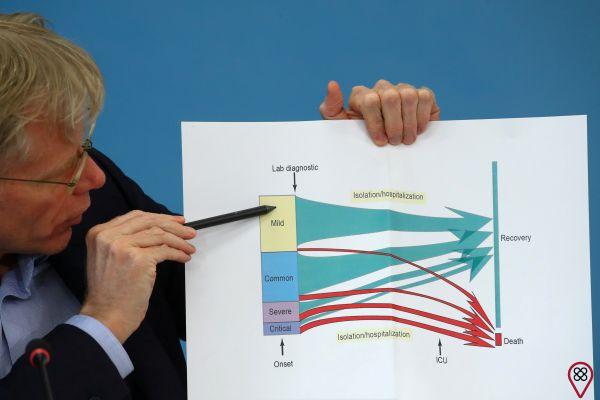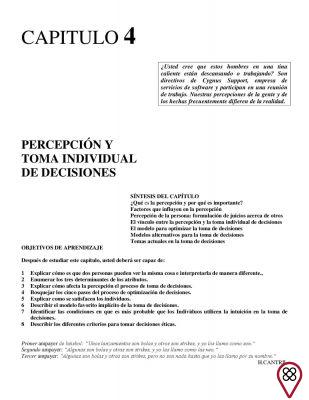
When we talk about phobias, we refer to an intense fear of objects, animals, places, situations or actions of the most varied natures. But what is agoraphobia? When you think of agoraphobia, you immediately think of fear of crowds. But this concept goes much further.
Did you know that more than 150 Spanish people suffer from agoraphobia, as estimated by Hospital Israelita Albert Einstein, in São Paulo? The survey was released in 2022, and unfortunately, agoraphobia can affect people of all ages, even if they don't have the same symptoms or fears.
Therefore, in this article, understand what agoraphobia is, what are the causes, symptoms, how to diagnose and treat it.
What is Agoraphobia?
Agoraphobia is a disorder characterized by heightened fear and anxiety triggered by actual or anticipated exposure to a wide range of situations, such as:
- Open or closed spaces;
- crowds;
- Places outside your home;
- Public transportation.
In this sense, some emotions such as fear and anxiety are generated by being alone in places or situations from which it would be difficult or embarrassing to escape. Thus, people who suffer from agoraphobia experience thoughts that something terrible could happen to them.
The meaning of agoraphobia is that the word comes from a combination of the Greek terms “agora” (open, large place) and “phobia” (fear). However the severity of symptoms is variable, but this form of phobia tends to be considered one of the most disabling manifestations of anxiety, because those who suffer from it are highly likely to experience voluntary confinement at home over time (unless accompanied), to avoid situations of discomfort or real panic.
What causes agoraphobia?
It is unclear what causes agoraphobia. However, it is often associated with an existing panic disorder. Agoraphobia can make you feel extreme fear and stress, which can lead you to avoid situations and severely limit your ability to live from day to day.
The development of this disorder is, therefore, closely related to the learning and management of emotions: in the face of a situation in which we feel bad, the response is to avoid it or run away, which ends up perpetuating it.
Symptoms of Agoraphobia
The severity of agoraphobia can vary greatly from individual to individual. People with severe agoraphobia may not be able to leave the house, while others with mild forms may be able to travel short distances without issue.
Most symptoms are associated with fear of certain situations, such as:
• Being afraid to spend time alone;
• Being afraid to leave the house alone;
• Fear of closed spaces, such as cinemas, elevators or small shops;
• Fear of open spaces, such as parking lots or bridges;
• Being afraid of places that are difficult to escape from;
• Feeling detached or separate from others;
• Feeling powerless;
• Feeling that your body and surroundings are not real.
Some of the sensations when feeling this fear are as follows:
• Accelerated heart rate;
• Hyperventilation;
• Sweating;
• Nausea;
• Dizziness;
• Feeling of suffocation.
Some people are able to force themselves to deal with uncomfortable situations, but still experience considerable fear and anxiety in doing so.
What can trigger crises?
Agoraphobia usually manifests itself from some triggers or situations that the individual faces in a certain place, such as being in the middle of a crowd or even staying in closed environments, such as elevators, theaters, cinemas and stores. But there are also some risk factors, such as:
• Having a panic disorder or other phobias;
• Responding to panic attacks with excessive fear;
• Experiencing stressful life events, such as abuse or the death of a loved one;
• Has an anxious or nervous temperament;
• Having a blood relative with agoraphobia.
How to diagnose Agoraphobia?
Diagnosing agoraphobia usually requires several interviews with a psychiatric specialist, who will assess symptoms, in addition to performing a physical exam and a blood test.
In many cases, the specialist also talks with family and friends to learn about the sufferer's changes in behavior and obsessions.
As for treatment, it should be started as soon as possible after diagnosis to prevent the patient from taking refuge in alcohol or falling into depression.
Treatments
Therapeutic intervention typically combines specific treatments, depending on the primary diagnosis, with others of a more general or contextual nature, depending on the patient's personal characteristics and circumstances.
The treatment that offers the best results in agoraphobics is exposure therapy, a type of cognitive-behavioral psychological therapy that aims to help the affected person face and manage their fears.
With the help of a specialist, the person progressively seeks out and gets in touch with what is causing their fears until their anxiety gradually decreases due to the familiarity they acquire with the situation.
The psychiatrist may also prescribe antidepressants and anxiolytics, especially at the beginning of exposure therapy.
The treatment of agoraphobia has a high success rate, but the prognosis will depend on the severity of each case, the patient's motivation with the treatment and how limiting it is for that person to avoid situations that cause fear.
Awareness and support of those close to you
Therefore, good mental health is an essential part of life, as is good physical health. And this also applies to agoraphobia, as the topic has not been talked about for a long time. That's why we need to ask for help when something doesn't go well.
Therefore, the increase in awareness and willingness to deal with the issue ushered in an era of understanding and acceptance, in addition to overcoming some barriers of public stigmatization. There are still many challenges to be faced, however, with treatment, it is possible to lead a calmer life.
You may also like
- When Fear Turns to Panic
- Discover where the root of fear comes from
- Find out how to feel good about yourself
- Here's how to overcome terrible social phobia
- Tips to avoid panic attacks
There are no specific measures to prevent agoraphobia, but if you experience irrational fears or strong anxiety in certain situations, it is recommended to see a professional as soon as possible.

























